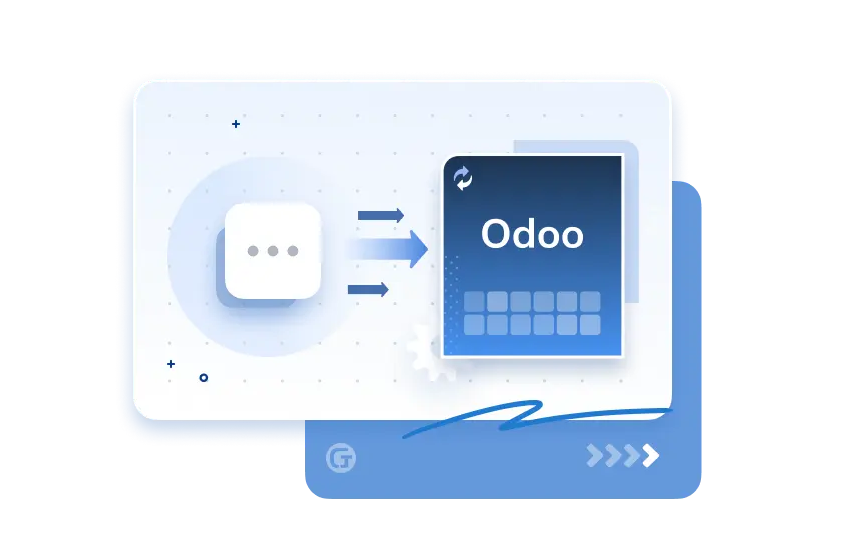As businesses increasingly rely on Odoo for their enterprise resource planning (ERP) needs, one aspect that often goes underappreciated—until it's urgently needed—is the migration of custom modules. Migrating from one version of Odoo to another is not always a straightforward process, especially when you've built your business processes around custom-developed modules. These modules often contain mission-critical logic, integrations, and workflows that don’t exist in the core system. When it's time for an upgrade, the complexity of transferring them to the new version escalates.
That’s where specialized Odoo migration services come in. In this article, we’ll explore why custom module migration in Odoo is so challenging, what’s at stake, and how expert Odoo migration service providers can help businesses avoid pitfalls, ensure continuity, and achieve long-term scalability.
Understanding Custom Modules in Odoo
Odoo is an open-source ERP platform that is highly modular and customizable. While its core modules—such as Sales, Inventory, Accounting, and HR—serve many general use cases, businesses often need additional functionalities that are unique to their operations. This leads to the development of custom modules, which can include:
- Specialized business logic or workflows
- Third-party integrations (e.g., payment gateways, logistics platforms)
- Customized reports and dashboards
- Modified UI/UX for specific business roles
These modules are often tightly coupled with other parts of the system, which makes their migration a technically intricate task.
Why Custom Module Migration is Challenging
While migrating standard Odoo modules might seem manageable, custom module migration introduces a range of difficulties:
1. Code Incompatibilities
Each new version of Odoo brings changes to its core structure, APIs, ORM (Object-Relational Mapping), and business logic. Custom modules that worked perfectly on version 12 might break on version 15 due to deprecated methods or updated models. Migration isn't just about copying code—it's about rewriting and refactoring it.
2. Data Mapping Complexities
Custom modules usually introduce new data models or alter existing ones. Mapping this data accurately to the new version’s schema requires a deep understanding of both versions. One incorrect field mapping can lead to data corruption or loss.
3. Security and Access Rights
Migrated modules must respect new security protocols and access control lists (ACLs) introduced in the latest version. Overlooking this can result in vulnerabilities or improper access management.
4. Dependency Issues
Custom modules often depend on third-party or other custom modules. When migrating, all dependencies must be checked for compatibility and updated as needed. This adds layers of complexity and risk.
Risks of DIY Custom Module Migration
While the Odoo community provides documentation and some open-source tools to assist with migration, DIY migration is not advisable for custom modules, especially for mission-critical systems. Here's why:
❌ Lack of Technical Depth
Odoo's internal architecture evolves rapidly. Without a thorough understanding of its changes, it’s easy to miss important migrations steps.
❌ High Downtime
A poorly executed migration can lead to extended downtime. For customer-facing systems or those that manage inventory, sales, or accounting, even a few hours of downtime can result in significant revenue loss.
❌ Data Loss or Corruption
Incorrect data migration scripts or misaligned models can lead to missing records, duplicated data, or non-functional modules post-upgrade.
❌ Poor Performance Post-Migration
Even if a custom module seems to work after DIY migration, subtle bugs or inefficiencies may degrade performance over time, affecting user satisfaction and productivity.
Why You Need Specialized Odoo Migration Services
Given the risks and complexities involved, turning to a specialized Odoo migration service is not just a good idea—it’s often essential. Here’s how expert providers can help:
✅ In-Depth Version Knowledge
Specialized teams stay up-to-date with every Odoo release. They understand the architectural differences between versions and can plan the migration path accordingly.
✅ Custom Module Audit
Professionals conduct a thorough audit of your custom modules before migration. This helps in identifying redundant code, deprecated APIs, or areas that can be optimized in the new version.
✅ Seamless Data Transition
Expert providers create precise data mapping schemas, ensuring that no custom data is lost or corrupted. They also run data validation scripts post-migration to ensure integrity.
✅ End-to-End Testing
From unit tests to integration and user acceptance testing (UAT), comprehensive testing ensures that migrated modules function as expected in the new environment.
✅ Reduced Downtime
With proper staging, rollback plans, and real-time monitoring, professionals can migrate your system with minimal to zero downtime, maintaining business continuity.
✅ Post-Migration Support
After the migration, specialized teams offer continued support to resolve any unforeseen bugs or integration issues.
Custom Module Migration: Step-by-Step by Experts
Let’s walk through a typical custom module migration process managed by a professional odoo migration service provider:
1. Initial Assessment
- Identify all custom modules and their dependencies
- Evaluate complexity and compatibility with the target Odoo version
2. Code Review and Refactoring
- Refactor deprecated code
- Rewrite affected functions using updated APIs
- Ensure adherence to the latest Odoo coding standards
3. Test Environment Setup
- Create a sandbox environment mirroring the production system
- Deploy migrated modules here first to conduct testing
4. Data Migration
- Extract, transform, and load (ETL) data as per new schemas
- Perform data integrity checks
5. Comprehensive Testing
- Functional testing of custom features
- Integration testing with Odoo core and third-party modules
6. Go Live
- Schedule a minimal-impact deployment window
- Monitor the system closely post-launch
7. Ongoing Support
- Debugging and patching
- User training and documentation updates
When Should You Opt for Custom Module Migration?
Not every Odoo upgrade demands immediate migration of all custom modules. However, you should consider specialized services in the following scenarios:
- Your custom modules are deeply integrated with financial, operational, or CRM systems.
- You're upgrading across multiple major versions (e.g., from v10 to v16).
- Your business runs 24/7 and cannot afford extended downtime.
- You lack in-house expertise on both older and newer Odoo versions.
- You want to modernize your custom modules using new features (e.g., Owl framework, better UI components).
Choosing the Right Odoo Migration Service Partner
Not all service providers are created equal. When selecting a partner for migration Odoo, look for:
- Official Odoo Partner status
- Proven experience in custom module migration
- Access to certified Odoo developers
- Transparent project management and timelines
- Comprehensive post-migration support
- Real client case studies
One such example of a reliable provider is GloriumTech, offering tailored odoo migration services for complex environments.
Final Thoughts
Custom module migration in Odoo is not a task to be underestimated. It requires more than technical know-how—it demands a deep understanding of your business logic, data architecture, and Odoo’s ever-evolving framework. Whether you’re upgrading to leverage new features or to keep your system secure and efficient, relying on professional odoo migration services can ensure that the transition is smooth, secure, and future-ready.
Cutting corners with DIY approaches might seem cost-effective upfront, but the long-term risks—from data loss to system downtime—far outweigh the savings. Let specialized Odoo migration service providers handle the heavy lifting so you can focus on growing your business.

